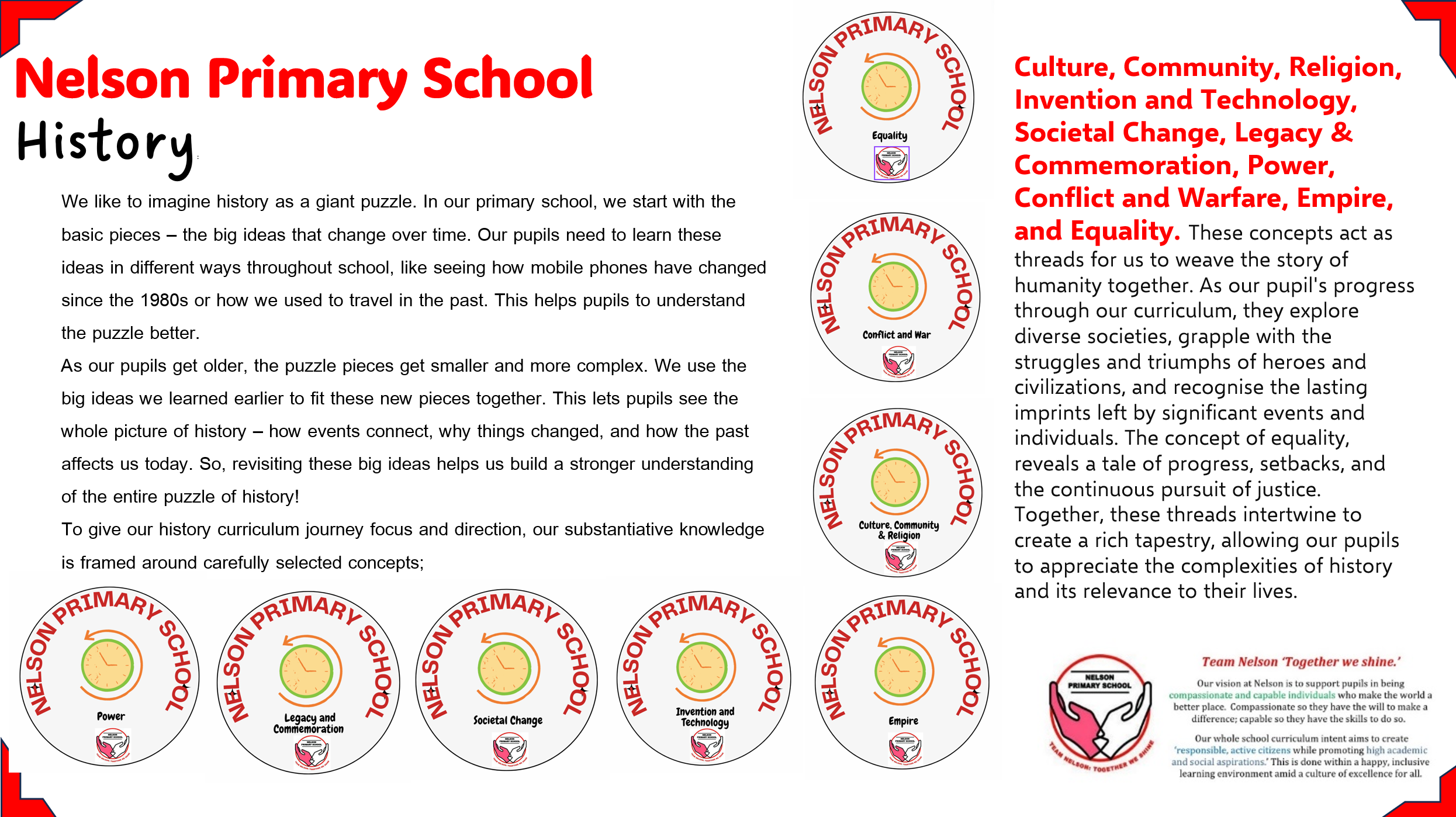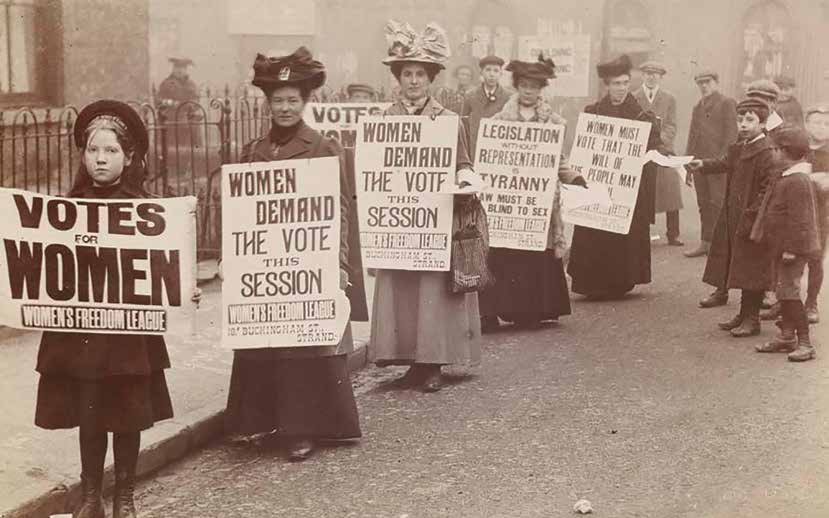Key Concepts
Our History curriculum is designed around key concepts that help pupils explore the rich tapestry of history.
We've carefully selected the following key concepts for our history curriculum as these are important to us as a school.

- Culture, Community, Religion: Understanding diverse cultures, the role of communities in history, and the impact of religion on societies.
- Invention and Technology: Innovation drives progress and is a crucial element of historical change. The world is a fast changing place. We want our pupils to understand this as they are our next generation of innovators.
- Societal Change: Understanding how societies evolve over time. Birmingham is constantly developing as a city. With it, we have seen infrastructure and cultural changes that will change our children's future lives.
- Legacy & Commemoration: Recognising the legacies of historical events and figures
- The importance of remembering and commemorating significant events and individuals.
We also want children to understand the impact of these concepts:
- Power: The influence and control that individuals, such as monarchs and African Oba's, as well as groups, exert in historical contexts, often structured within complex hierarchies. Hierarchies played a significant role in ancient civilisations like Egypt, Ancient Rome, and Greece, as well as in Anglo-Saxon society and the Benin Empire, shaping the distribution of authority and the social order.
- Conflict and Warfare: The pivotal role of conflict, battles, and wars in shaping the course of history. For
For instance, as pupils progress to higher year groups, they explore complex conflicts like WW2 and Britain's war with the Benin Empire, delving into the causes, consequences, and broader historical context. We focus more on warfare, predominantly in UKS2. Children learn how conflict contributes to societal change, empire-building, and the development of democracy.
- Empire: The growth, expansion, and influence of empires throughout history. Again, our older children tend to explore this concept in KS2, starting with the Roman Empire in LKS2 and then moving onto the British Empire in UKS2.
-
Equality: The quest for equal rights and opportunities in different historical periods. We teach our pupils that gender equality and women's rights has not followed a linear progression but has been marked by periods of progress and setbacks. For example, in Ancient Egypt (y3), women had relatively more rights
 compared to many other ancient civilisations, but in Ancient Greece (y4), women had limited rights and were primarily confined to domestic roles. However, we teach children that some women "bucked the trend", such as Cynisca, a wealthy spartan princess who competed in the Olympic Games and won. By the ancient Roman era (y4), women's rights were gradually expanded, and they had more legal rights compared to earlier societies. Whilst the 19th and 20th centuries (yr6) brought significant advances in women's rights, particularly in Western societies. Women began to gain the right to own property, access education, and, eventually, the right to vote (yr2). These changes were not linear, and progress was often marked by significant struggles (yr6).
compared to many other ancient civilisations, but in Ancient Greece (y4), women had limited rights and were primarily confined to domestic roles. However, we teach children that some women "bucked the trend", such as Cynisca, a wealthy spartan princess who competed in the Olympic Games and won. By the ancient Roman era (y4), women's rights were gradually expanded, and they had more legal rights compared to earlier societies. Whilst the 19th and 20th centuries (yr6) brought significant advances in women's rights, particularly in Western societies. Women began to gain the right to own property, access education, and, eventually, the right to vote (yr2). These changes were not linear, and progress was often marked by significant struggles (yr6).
